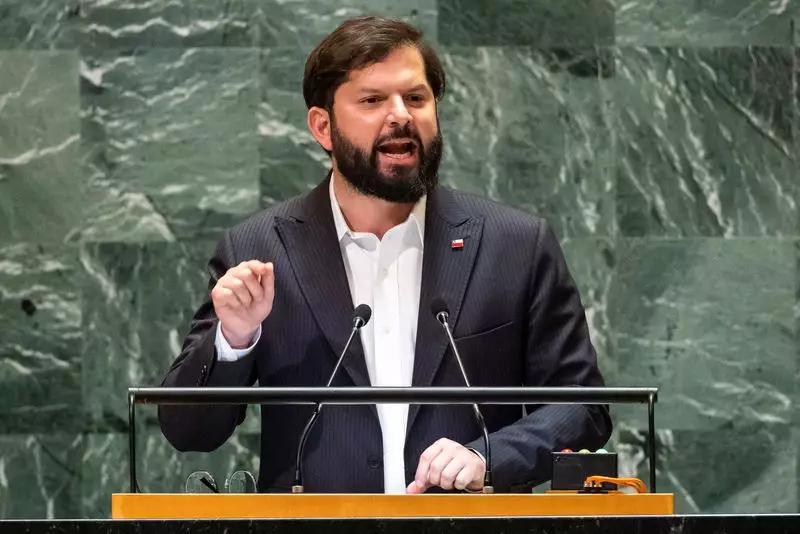President Gabriel Boric of Chile has unveiled plans for a modest 2.7% annual increase in the national budget for 2025, aiming to enhance several critical sectors. This increase is primarily directed at improving pensions, healthcare, and enhancing national security measures across the nation. By emphasizing the augmentation of funding in these areas, the government is signaling its commitment to addressing the pressing needs of its citizens while navigating the complexities of economic recovery.
At the forefront of Boric’s budgetary proposal is a significant enhancement in the allocation for justice and security, projected to exceed this year’s funding by $1.5 billion. This marks a 15% increase over three years, reflecting a decisive governmental strategy to bolster public safety. Boric has articulated a clear message: the protection of citizens is non-negotiable. By increasing police presence on the streets and providing better compensation for law enforcement personnel, the administration is taking tangible steps toward mitigating crime and instilling a sense of safety among citizens. Furthermore, investments in the prison system indicate a comprehensive approach to not only curbing crime but also facilitating rehabilitation within the criminal justice framework.
The budget proposal also hints at a stricter immigration policy. Boric’s recent statements regarding illegal migration indicate a shift toward controlling the influx of newcomers, particularly in light of the ongoing crisis in Venezuela, which has seen significant emigration. In a bold move, the president has expressed intentions to expel migrants who fail to register through official channels. This shift, aimed at curbing the strains on resources, signals an increasing focus on internal stability over external humanitarian obligations—an approach that may draw both support and criticism within and beyond Chile’s borders.
Beyond security and migration, Boric’s budget promises noteworthy investments in healthcare and digitization efforts. With a 42% increase in funding for immunization programs, the administration aims to enhance public health initiatives significantly. This commitment is essential, especially in a post-pandemic landscape where health disparities have been exacerbated. Moreover, the government’s initiative to digitize multiple sector permit processes represents a progressive move towards facilitating investment and streamlining bureaucracy. Such measures are particularly pertinent as Chile navigates economic vulnerabilities, striving for sustainable growth amidst global financial uncertainties.
Despite these ambitious proposals, Chile’s central bank has tempered expectations for economic growth, revising forecasts downward from earlier predictions—now projecting growth between 2.25% and 2.75% for the upcoming year. With Boric’s administration aiming for a growth target of 2.6%, the financing of these budgetary expansions will be crucial. The government plans to introduce the budget bill to Congress, where lawmakers will deliberate for 60 days. This legislative process will be critical in determining the feasibility and implementation of these initiatives.
President Boric’s budget for 2025 encapsulates a strategic focus on national security and essential public services, signalling a proactive approach to the evolving socio-economic landscape of Chile. Balancing these priorities with fiscal responsibility will be paramount as the nation moves forward.

